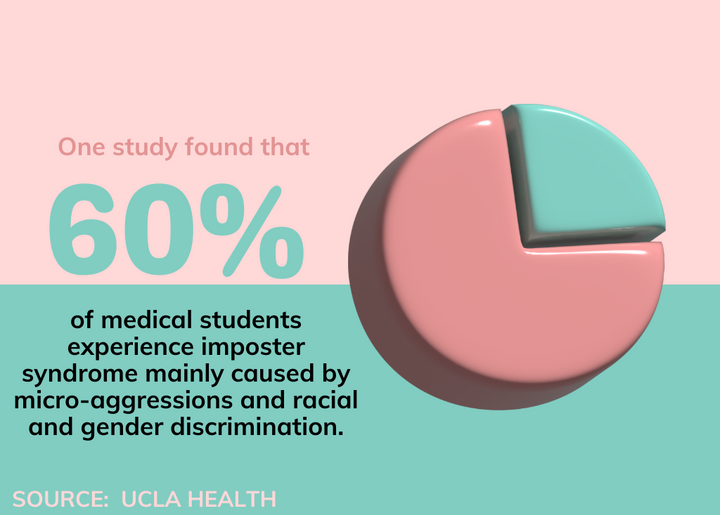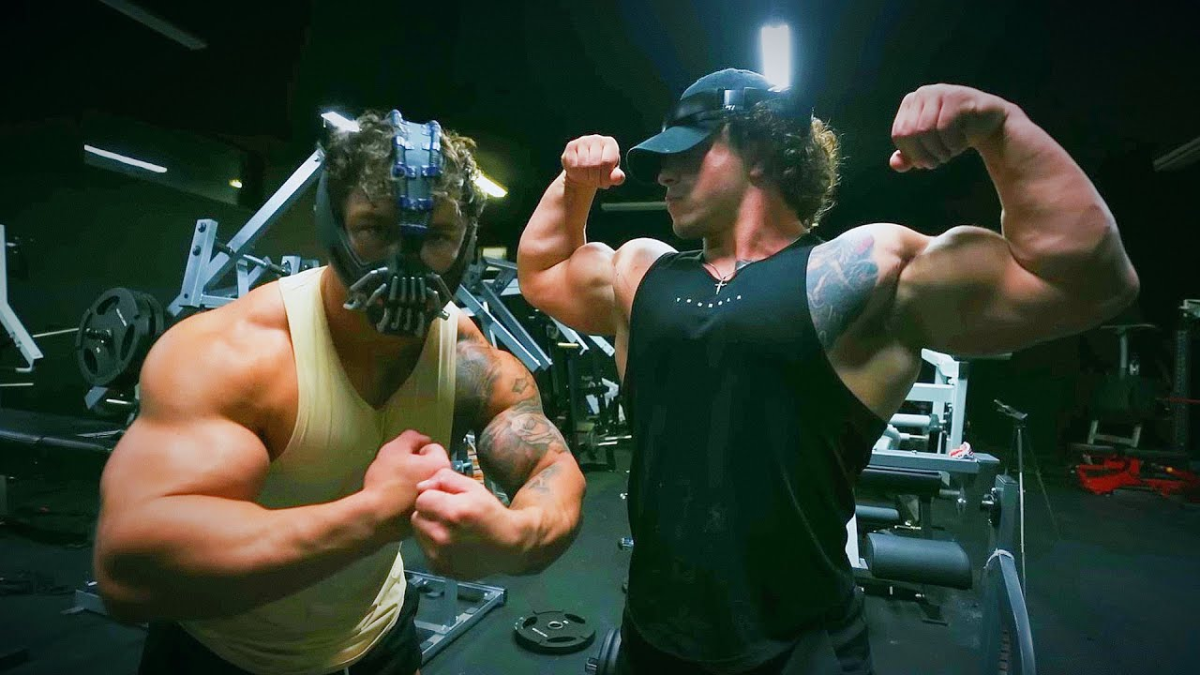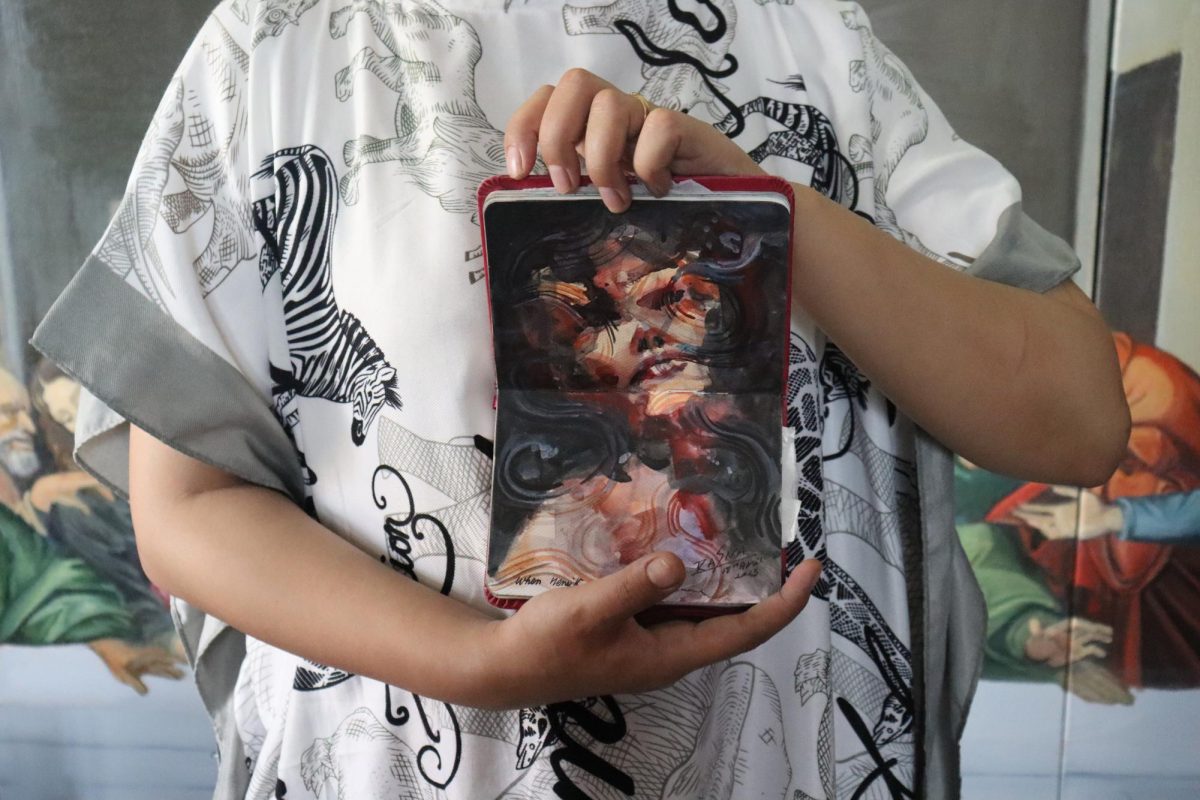ARE YOU AN IMPOSTER?

The statement, “I JUST GOT A JOB OFFER AT ABC NEWS!” is plastered on my phone screen. I liked the message before turning my phone off. I pulled the doors open to the classroom as I entered a sea of cheers. “CONGRATULATIONS ON WINNING A HEARST JOURNALISM AWARD,” I chanted. The encores finally came to a simmer as I spent the rest of class thinking to myself, when will I get my dream job and get to post about it? When will I get the applause and recognition for my work? Am I not receiving all of this because I am just not good enough? Am I even worthy of becoming a journalist?
I did not know much about imposter syndrome until my friends and peers expressed their frustrations about it.
The life of a college student is not easy as they sit through hour-long lectures, having to maintain grades, all while working multiple jobs to afford a degree that they may feel like they don’t deserve. Many students have doubts in their ability to succeed in a field they put their time, money and effort into perfecting, which then leads them to believe they are undeserving of opportunities that come they’re way, or appraisal for their accomplishments because they feel like a phony or an imposter.
“Despite having so much knowledge regarding control room operations, I continue to doubt myself, making it challenging to fully embrace and excel in my position. And this extends to additional skills such as editing video and audio,” said Jianni Burnett, a 2023 journalism graduate.
Educating students about imposter syndrome will show them that they are not alone. This in turn will hopefully lead to their mask finally being lifted as they say goodbye to their imposter syndrome.
According to the American Psychological Association, “Impostor phenomenon occurs among high achievers who are unable to internalized and accept their success, often attributing their accomplishments to luck rather than ability.” This idea is better known as imposter syndrome. However, the handbook, Diagnostic and Statistical Manual of Mental Disorders (DSM-5) which is used by healthcare professionals to categorize and diagnose disorders, does not recognize imposter syndrome as a mental illness. Nevertheless, it can have a serious impact on people’s mental health.
Imposter syndrome is complex and has many forms. In order to distinguish each, it’s categorized into five different groups.
I exhibit signs of the first type of imposter syndrome: The Perfectionist. If everything is not done flawlessly I will spend hours on little details to get it right. However, if it doesn’t end up that way I feel like I failed that task.
The Soloist exhibits signs of the second type of imposter syndrome by constantly feeling the need to do everything on their own, even if they need help because if they ask for it, they believe that shows weakness.
Jianni Burnett exhibits signs of the third type of imposter syndrome: The Super Person. Burnett has always been pushed by her parents to be the best, so she constantly strives for the stars by overworking herself. However, when she fails to do so she feels like an imposter.
The Expert suffers from the fourth type of imposter syndrome. They feel the need to cram and study a subject right away. When they don’t end up grasping the topic fast enough they feel like a fraud.
Isha Hussain is exhibiting signs of the fifth type of imposter syndrome: The Natural Genius. Despite her good grades she still feels as though her other peers are higher achievers making her feel like a failure in her field.
The National Cancer Institute had studied the phenomenon, “In 2020, a systematic review of 62 studies evaluated prevalence of imposter syndrome, showing rates as high as 56% to 82% in graduate students, college students, nurses, medical students, and other professions.”
Sinead Singleton is a laid back and relaxed individual. This ‘cool as a cucumber’ personality allowed her to care little about school assignments and exams in high school. However, when she went to Nassau Community College and developed an interest in nursing, she no longer can get away with flunking tests and missed homeworks. This is causing her to have doubts in her ability to do well in her field.
“I’ve definitely struggled with [imposter syndrome] especially when starting my prerequisites, everyone seems so smart in such a challenging class and I felt it was a joke I was in there,” Singleton said.
A study on imposter syndrome conducted by the National Library of Medicine found that, “Up to 82% of people face feelings of impostor phenomenon, struggling with the sense they haven’t earned what they’ve achieved and are a fraud.”
The likelihood of having imposter syndrome becomes more prominent with individuals who have dealt with micro-aggressions, internalized biases and misrepresentation.
A field like STEM (Science, Technology, Engineering and Math) typically is a male-dominated that comes with a multitude of subtle prejudices and self-objectivity putting access pressures for perfection for both male and females. Women are constantly trying to prove that they can excel in the field that is run by men, whereas men are already expected to succeed in it because they dominate it.
Isha Hussain grew up being the only girl out of three brothers. This came with its own set of biases as she felt in competition with her overachieving siblings. However, she went on to create her own path, attending Farmingdale State College, majoring in psychology. Now, she is attempting to prove to herself and others that she can be a woman in STEM.
“We all constantly get compared to others and, even if we perform well, someone always performs better. In my own experiences, whenever I would get good grades or achieve something, I would always think that someone out there is smarter than me and that my success didn’t matter,” Hussain said.
Similar to STEM, journalism is a highly competitive field with everyone racing to get on news stations and write for big publications. Students are immersed right away in writing, reporting, editing and producing. Everything is thrown at you at once and you have deadlines to meet and good grades to seek. The need to remain perfect and overachieve is huge, as you have to be the best nowadays to even get a foot in the door.
Jianni Burnett pushes herself to make sure her school projects and her work as being an assistant studio manager comes out perfectly. This constant need to be the best creates self-doubt and leads her to put enormous pressure on herself.
“I understand that there will always be room for improvement in such a dynamic industry. However imposter syndrome has impacted my perception of my role in the control room as an assistant studio manager,” said Burnett.
External factors can also lead students to feel a sense of self-doubt. For Burnett the external factors were pressures from her family members or people who doubted her abilities. This put her in a tough position, where she felt the need to live up to her parents expectations or prove the people who underestimated her intelligence wrong.
“I hold myself to such a high standard because of the pressure from my parents and myself, but I believe this intense pressure does more harm than good at times. In high school, my dad would say things like, “That’s great that you got a 98, but where are the extra two points?,” pinpointing where I fell short. After remarks similar to those I began hyperfocusing on my potential faults instead of celebrating my wins that were more frequent than not. I’ve always received high grades and excelled in extracurriculars, but it became the norm for me and if I did anything that felt less than excellent it felt like failure,” said Burnett.
This was something I could relate to. While I was growing up and being told by my elders I was not good enough and would amount to nothing led me to want to over achieve and be great at everything. However, when things didn’t turn out to be phenomenal in the way I wanted, I began to think the problem was me. As a journalism student at Stony Brook University, I constantly feel the need to overwork and perfect my articles and videos even if it means nit picking every little detail for hours straight. This then leads to the constant stress of making sure things come out flawless when more times than not the idea of perfectionism is simply out of my control.
Keeping students safe is a university’s main responsibility. However, protecting a student’s mental health is just as important as shielding their physical well-being. Universities like North Carolina’s (UNC) Chapel Hill and Stony Brook University are changing this by focusing on aiding their journalism students through their internal struggles.
Journalism students go out on the field and cover anything from traumatic to happy news. They spend hours interviewing people about their struggles, yet have to suppress their own, whether this be life outside of the field or the grueling work they face in it.
Therapist Carolyn Ebeling at The Hussman School of Journalism at UNC Chapel Hill specializes in helping journalism students cope with their day to day struggles.
“Students enjoy having dedicated staff members and having access to a person who is there for them when they need,” Ebeling said.
She claims the help can she can give students consists of the following:
-
Individual brief therapy
-
Helping students branch out to other types of therapy
-
Accessibility (students don’t have to leave the school)
-
Greater variety of appointment times
This received positive feedback from students as many came through her doors during the stressful periods of the semester like midterms and finals week.
Although Ebeling does not claim to be a specialist for imposter syndrome, students have come to her with this anxiety-related dilemma. She showed visual representations to affected students to highlight their achievements and encouraged them to reach out to friends and mentors so that they know they are not alone.
The School of Communications and Journalism (SOCJ) at Stony Brook University does not have individualized therapy for their journalism students like UNC Chapel Hill. However, an innovative approach is aiding students to get out of their own head.
Within SOCJ there is the Alan Alda Center for Communicating Science. It is named after Alan Alda, a legendary actor in the hit show M*A*S*H who also went on to have a popular science show. He had a profound interest in the subject but found that leading scientists were not always good communicators. He teamed up with Stony Brook University’s Center for Communicating Science and created the Alan Alda Method.
Alda believes in using improvisation, allowing scientists (and journalists) to accept what’s in front of them and be present in the moment.
“Accept who you are, when it’s okay to be who you are, levels of stress are likely to go down,” said Radha Ganesan, a member of the Alda Center’s multidisciplinary team.
The Alda Method, like a therapy session with Ebeling, does not specifically address imposter syndrome. However, by having a clear head through therapy and improv, thoughts of self- worth and doubts begin to lessen.
The efforts by UNC Chapel Hill and Stony Brook University to address their students’ mental health can help lay the foundation for other universities to create their own unique methods to help their own students.
“Some come with imposter syndrome but don’t present it that way. They come with a lot of self doubt and when they are presented with the idea of having imposter syndrome, they do relate,” Ebeling said.
Before my research I didn’t know that imposter syndrome doesn’t assume one form. I always believed only people who thought they were not good enough were the ones with imposter syndrome. Because I was proud of my accomplishments, I thought I did not suffer from it. However, I couldn’t be more wrong.
This was also the case for Lauren, a business major at the University of North Florida, who wishes to keep her surname private. She always excelled at school but juggled a lot outside of it, like sports and valuing her time with family. This balancing act came with its stressors.
When I asked Lauren if she suffered from imposter syndrome she replied unhesitatingly, “I’ve never really had imposter syndrome.”
Yet, she admitted, “I just feel like I set too high of goals for myself and when I don’t reach them I get upset.”
When unmasking the layers of imposter syndrome, someone like Lauren, who does not think she has this condition, may be surprised to find that she does. Although she previously stated she never had imposter syndrome, she is exhibiting signs of such.
Imposter syndrome is a mental game your mind plays. It mainly centers around an internalized battle to be the best, whether that be perfecting your work, doing things on your own and not seeking help when needed, trying to master a task rapidly, overachieving and equating smarts with how fast you were able to learn something. However, whatever happened to being good enough? Why must people feel like they have to be the best when others who are just as successful or simply don’t care and enjoy going at their own pace.
There is science behind the madness. According to the self-help website, MentorCruise, “The limbic system, often referred to as the emotional brain, plays a pivotal role in imposter syndrome. The brain’s amygdala, which processes fear and anxiety, can become overactive, triggering feelings of self-doubt and worthlessness.”
Imposter syndrome can take over your life, changing it for the worse. Seeking a professional’s help can potentially lead to a more stable mindset.
A primary care physician, who wishes to remain anonymous, discussed how she would help a patient who came to her with signs of imposter syndrome. Her aim is to increase their self-esteem and boost their ego. This can result in a decreased feeling of failure because they will have gained additional self esteem. This type of approach helped her when she was experiencing imposter syndrome as a biomedical student.
“I would try to have them focus on things that they know make them feel confident and situations that they are already more confident in, and tell them to try to bring those aspects into the place where they do feel like they have the imposter syndrome.”
You might live by the mantra, “Fake it till you make it” to get through college but hiding behind a facade can affect your performance inside and outside the laboratory or newsroom. Talking to your peers will reveal you are not the only one facing this issue and can help you conquer it together.
Some students have found effective ways to cope.
Singleton was anxious as a freshman, but realized quickly, “I was fine and that everyone puts on an act in the first few weeks of class,” she said.
Hussain who had doubts in her abilities initially has now found effective ways around this mentality. “Ways I learned to cope with this thought process includes learning that everyone truly is different. Someone may be bad at something you’re good at and others might be successful in ways that you are not. Everyone is their own person, it’s what makes up our identity,” she said.
Burnett has also found ways to simmer down her constant desire to overachieve.
“I cope by reminding myself that I have a lot more knowledge than a person that hasn’t been introduced to the skills that I’ve gained. I also have to remind myself of my affirmations that I reiterate to myself: I’m in the position that I’m in not because of luck, but because of what I know and my ability to adapt,” she said.
After Lauren found out she has imposter syndrome she is “trying to take it day by day instead of looking so far into the future. Just looking at what I can accomplish now,” she stated.
Knowing that you’re not alone and you have a sea of peers who are in the same boat can make a huge difference in the way you perceive yourself.
In a world where it is the “survival of the fittest” it is inevitable to have some uncertainty and doubt about whether one is good enough. Talking it out with a professional or a friend can make a difference, possibly resulting in a boost of self confidence. Thus allowing an individual to finally lift off their mask.
Daniella Rodriguez-Robelledo has a passion for journalism. She faced many ups and downs throughout her journey, leading her to develop imposter syndrome as well. However, with a lot of perseverance and blocking out the negative thoughts in her head, she made her dreams into a reality. Now, she works for News 12 as a Brooklyn Nightside Multimedia Journalist/Reporter.
“You just have to find yourself and you absolutely will. It’s going to take time… but don’t get in your head because at the end of the day the only thing that matters is the work you’re putting out… and the peoples lives that you’re changing,” she said.

In researching this piece it has helped me shake off my own feelings of self- doubt and given me confidence. Thus, allowing me to feel like less of a phony, leading me to blossom in a field that I once had doubts of being in.







